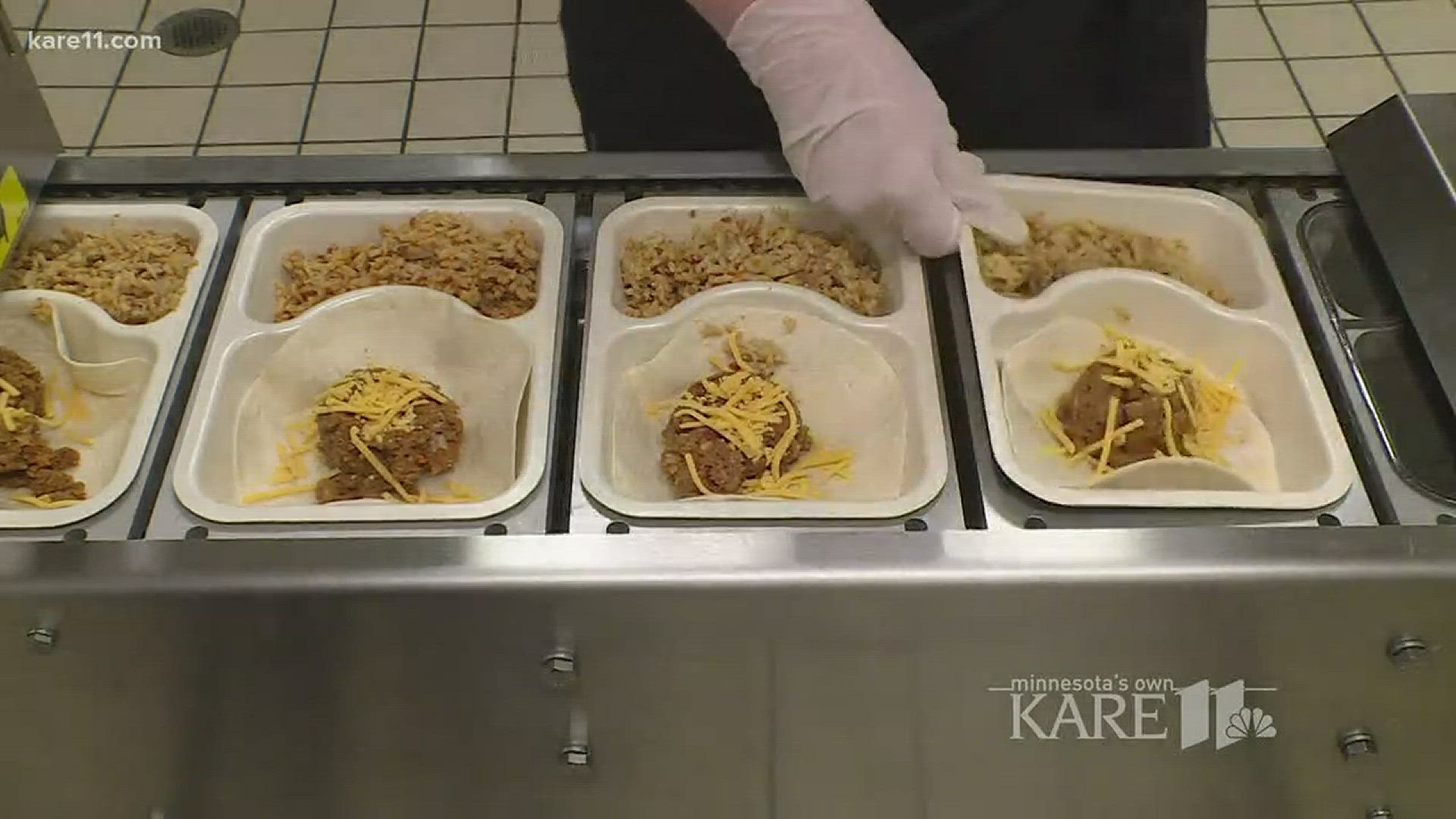MINNEAPOLIS -- A term like Federal Community Development Block Grant doesn't mean much to most people, but proposed cutbacks in those grants could impact a lot of the nutrition programs in Minnesota.
That's why Sen. Tina Smith on Friday helped Meal on Wheels deliver hot food to residents of John Carroll Highrise in South Saint Paul, to call attention to domestic spending cuts in President Trump's proposed budget.
"Meals on Wheels is funded in a variety of ways, through Medicaid, and also through the community development block grant program, which the president’s budget severely cuts," Sen. Smith told KARE.
"And if you take one little piece out the whole thing can fall apart."
She's sounding the alarm because the Trump blueprint calls for a 16 percent across the board cut for Health and Human Services, and the complete elimination of the Community Development Block Grant program.
Smith noted that Meals on Wheels has always been regarded as smart investment because it enables aging persons to live independently longer, and avoid skilled nursing facilities that ultimately cost them and the taxpayers more.
"They’re living on their own, and that’s because they have the help from programs like Meals on Wheels that allows them to stay here," Smith said.
One of the people Smith met with, Tom Barger, is a Vietnam War veteran who has Parkinson's Disease. He told Smith that the meals are invaluable, especially around the end of the month as money becomes scarcer.
Another delivery went to a 78-year-old man named Ray, who spent his entire life working as a cab driver and truck driver and in other jobs, but never had a private pension plan.
Meals on Wheels executive director Patrick Rowan said the agency serves roughly 4,000 meals per day in the Twin Cities, and costs are kept low thanks in large part to the volunteers who deliver the food.
"It’s really the volunteer and client interaction that makes meals-on-wheels so special," Rowan said.
"Our client surveys show that for 43 percent of the people we serve, the only person they see is their Meals on Wheels volunteer."
He said Medicaid subsidizes nearly half of the meals served, and Community Block Grants account for at least five percent of program's budget in the Twin Cities.
"We’re always struggling to serve the most nutritious food possible, and to as many people as need it, so when any one of those funding streams is threatened it can jeopardize the whole program."
Another proposed cut is in the Supplemental Nutrition Assistance Program, known as SNAP, and formerly known as the food stamp program. SNAP is part of the Farm bill, which will be debated and passed during 2018.
"SNAP benefits mostly children and parents who have children, and also people with disabilities and seniors," Smith explained. "It’s extremely important that gets the resources it needs out of the Farm Bill."
As a member of the Senate Agriculture Committee, Smith will be involved directly in trying to shape the Farm Bill. Minnesota farmers are watching closely, because the Trump Administration is also seeking to cut the agriculture budget, which will include crop support and conservation programs.

